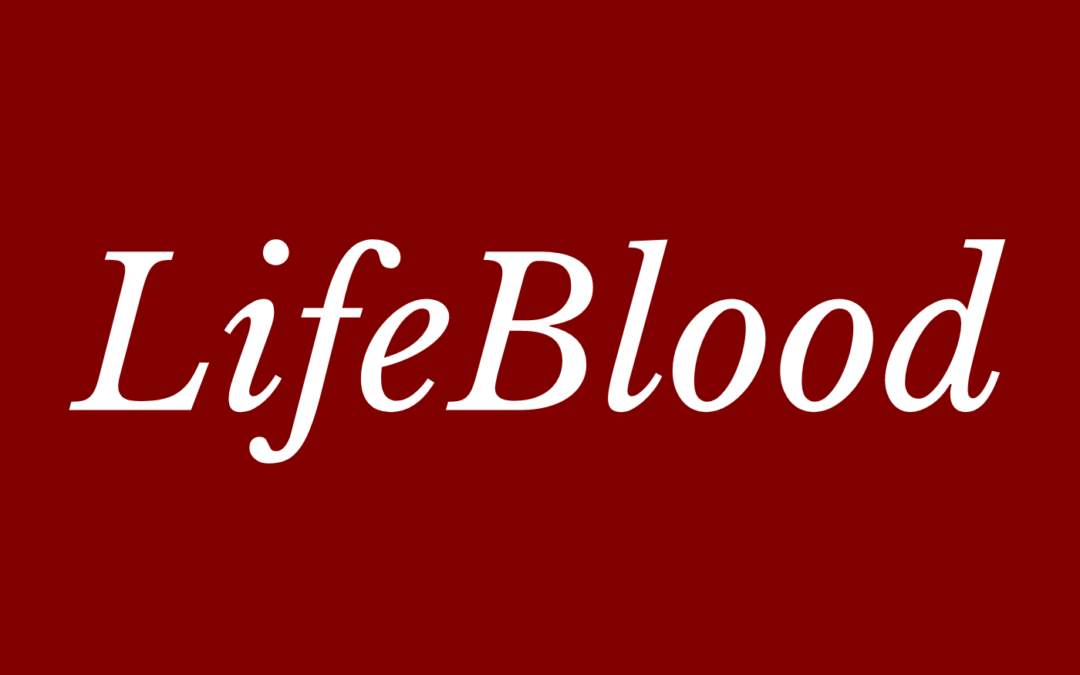Effective Altruism with Sybil Ackerman Munson
How focused and intentional are you with your money? Sybill Ackerman Munson shares her framework for effective altruism and how anyone can incorporate it into their lives!
Listen to us On
About the Episode
LifeBlood: We talked about effective altruism, what it means to give effectively, the four key elements to think about when selecting a nonprofit, and how to determine what kind of donor you are with Sybil Ackerman Munson, Philanthropy Professional and President of Do Your Good.
Listen to learn why it’s important to give to nonprofits you care deeply about!
For the Difference Making Tip, scan ahead to 16:45!
You can learn more about Sybil at DoYourGood.com, Facebook, Twitter, Instagram and LinkedIn.
Thanks, as always for listening! If you got some value and enjoyed the show, please leave us a review wherever you listen and subscribe as well.
You can learn more about us at MoneyAlignmentAcademy.com, Twitter, LinkedIn, Instagram, Pinterest, YouTube and Facebook or you’d like to be a guest on the show, contact George at Contact@GeorgeGrombacher.com.

George Grombacher
Lifeblood Host

Sybil Ackerman Munson
Guest
Episode Transcript
Come on. Welcome to lead flow. This is George G. And the time is right welcome today’s guests strong and powerful civil Ackerman Munson. Welcome civil.
Sybill Ackerman Munson 0:20
Thank you for having me. I really appreciate it
george grombacher 0:22
excited to have you on civil is a philanthropy professional with two decades of experience working with donors to establish best funding practices. She is the president of do your good civil, tell us a little bit about your personal life’s more about your work, why you do what you do?
Sybill Ackerman Munson 0:40
Well, I really thank you first for having me on the show. It’s such a wonderful talk, the all the things you talk about are so important when I was listening to your podcast, so I just I’m honored to be here. But my personal journey is that I worked for nonprofits. And I as part of that job I raised money to and I raise money so that I could really make a difference. You mean you have to raise money as a nonprofit person in order to make a difference in the world. And as part of that, I got to know some of the donors really, really well. And they served as my mentors too. It wasn’t just that they were writing checks. And the best donors didn’t just write checks. They wrote checks with impact by getting to know me super well. And then one day, one of the donors that I worked with so closely, he pulled me aside and he said, Hey, Sibel, I no longer want to run my foundation full time, I want to be a trustee. So I still want to be a person to making the decisions around money. But I’d rather have someone like you run it. And I said, Are you kidding me? I would love it. And so I went over to that side of the world. And for over a decade, I’ve been working for philanthropy, philanthropists, helping them give their money away effectively. So I started out as a full time executive director at this one foundation. But then over time, more and more families asked if I could help them. And so I then decided to create my own business, I still work for that first family, helping them. But I now work for many, many families, managing their foundations, and also work with individual donors, helping them to connect their interests with nonprofits. And so that’s sort of my personal journey. But I’d be happy to answer any questions you have for me, George, to talk more about this work.
george grombacher 2:33
I love it. So when you say give money away effectively, what does that mean?
Sybill Ackerman Munson 2:39
Yeah, I love that you’re asking that because in my time with donors, and also in my time as a nonprofit professional, I saw way too many times, when a donor a well meaning donor, would give money to a cause they cared about and literally waste their money. And they would waste it when I was in the nonprofit world, sometimes they would waste it and the donor wouldn’t even know, people would be like, thank you for your money. And they would end up really not doing the right stuff with it. And vice versa as well. Sometimes, a donor would decide they wanted to give to a cause and just give it to the wrong organization that wasn’t really working in the area that that donor cared about. And so over time, what happened is the donor lost interest. And so then they just stopped funding the work, which also was a big problem, I think. And so that’s why I actually have now created a new arm of my business, to expand the work I’m doing to help donors through public online courses, that I’m going to launch this fall, where a donor can really like in bite sized chunks, be able to figure out how to be effective, because really, you really can waste that money if you’re not careful.
george grombacher 4:05
Yeah, I think that that’s really well said right there. And there’s a lot that I want to dig into. I mean, I have to imagine that, that all of us whether I am a super affluent person, or somebody that has a couple of $100 to donate every year, I want my dollar to go as far as possible. I want it to make as big of an impact as possible. But I don’t necessarily know how to do that. And you know, so I need to know how and then it’s a function of its learning, but I don’t have a lot of time. So. So how do we how do we sort of break all that down?
Sybill Ackerman Munson 4:48
And let’s break it down. And this is this is what I do. This is my whole life. So I’m so happy to have me on it. Because there’s a lot of elements to what you just said there, George. And the first thing is, there’s a lot folks like you out there who actually not a lot of folks just like you, but you’re talking about Right, exactly. But people who are talking about smart financial planning, and what I hear a lot is that part of the Smart Financial Planning is allocate some of your funding to get some of the money, you have to give back to the world. But all too often, that’s all I hear, I hear, give back to the world, do what you care about. But and then the assumption maybe not from you, but from some folks you have me on here. So you obviously aren’t assuming that. But the assumption is, oh, just writing a check to a couple charities is the way to go. And that’s where I come in. Okay, so let’s talk about just a few things that I want to talk to your listeners about in terms of I’m assuming they’re folks who are interested in being financially savvy, and want to be able to give back and the first thing to George is you can make a difference, no matter how much money you have. It’s all about focus and intent, and connecting what you give to your passion. Okay. So the first thing I want to do in this conversation is talk about, let’s say you have any amount of money, you want to allocate that in, to giving away to good causes. So the first thing you need to do is figure out what that cause is, figure out what that issue is. And to do that this may feel obvious to many folks. But I actually recommend that you take a weekend, where you take a day, however long it might take you to really think this through, and you think about four key elements. And the first thing you do is you do not think about what other people think you should find, don’t think about like, oh, there’s going to be judgment, I should be funding the most important cause in the world. And let’s look at the new No, don’t do that. throw that out the window, stop being judgmental on yourself and say, I should be doing this, this and this. Instead, think about four key things. First, what’s your typical week? What do you do every week? Think about that. Second, what are your hobbies? What are the things you like doing that give you fulfillment? Third, what are the activities that make you happy, it could be the things you do in your daily life, it could be your hobbies, but there might be a special place you love to go to every year, there might be some special extra thing you love to do that really makes you happy. And then fourth, the most well, one of the most important is what keeps you up at night. What’s the thing, the issue that you personally worry about, or you think about too, and what I recommend, I actually have a course that’s already up that helps you really think through this work, and do some real key considerations about those four key elements. And I put myself through the same exercise. And what I find and what my clients find. And what other folks who do this find is that you’re going to find some through lights with there’s going to be particular issues that you do every week, hobbies place you love things you worry about that are similar. And no matter what it is that you’re doing, that you care about, there is going to be a do good cause nonprofit that’s going to connect to that no matter what, there’s always going to be something good to do in the world based on what you care about. And so the cool thing is, is usually if you’ve picked something has a through line two, those four issues, your friends, your colleagues, your family, other people are also working on those issues. So you’re not alone, either. And so that’s, that’s the first thing I wanted to talk about is those four key elements, sit down with yourself, journal, think about it. It’s so great to be able to do it in a way give money in a way that really you care about. I think that’s
great. Thanks. Yeah, though, that I just, this is all from, again, it’s sort of funny because it feels obvious, but it is not. I mean, a lot of folks I work with, I’ll come and they’ll hire me in to work with them one on one. And they’ll have already been getting in a strategy. They’re like, we’re not passionate about this. What do we do and it’s been years, right? So that’s why I feel like to start out really think about that. So then the next thing though, is okay, so you’ve let’s say you figured out what it is you care about by thinking through these four key points. say, Okay, I know what I want to work on. I want to work on homelessness, I want to work on ending hunger, any number of things. Again, no judgment can be really local. It could be I want to work on the education, supporting education in my local hometown. Anything, right? Okay. So you don’t want to stop there though. Okay, you know now what it is, but then how Do you give your money away, effectively, to help move that cause forward in a way that will help society deeply? And so what I suggest there is that the first thing you think about is, how do you want to you yourself, be seen in the world, what kind of give her Do you want to be. And again, no judgment. But I see in my years of experience three distinctive types of givers. The first kind of giver is someone who I call a sustainer. giver, someone who cares about house lessness, or climate change, or you name it.
And they say, I care about this issue, but I don’t know that much about it. And I have a full time job, and I’m super busy. I don’t want to learn too much about it, but I care about it. You know, it’s what I do. In my day to day life, I interact with issues there, I’ve done that exercise. But I don’t want to like know, all the nitty gritty about how to move the needle there. I know two or three nonprofits and charities who are already working in that area, I love those groups. And I want to give to them year after year, I want to maybe serve on their board, I want to go to their annual meeting, I want to do their outings. But that’s it. I don’t want to micromanage I have my own life. That’s a sustainer donor. That’s great. If you are a sustainer donor, though, the thing that I see that that will make you be successful, is by being really clear with a nonprofit, that that’s what you are, that means you’re not going to go in and say, Oh, I noticed there’s some little tweak you guys should do. Or maybe you should add a program here or there. No, no, no, if you’re a sustainer donor, you are in love with that group. And you got to be honest with yourself and them about that’s how you’re going to arrive to the situation. However, if you say no civil, I don’t I know there are some nonprofits out there on the issue I care about. But there’s a real problem that needs to change. So let’s say you care about climate change. And you say we all of our cars are dependent on fossil fuels, and we need to change to an electric sector, renewable energy sector. And I don’t feel like the groups necessarily are doing everything that they can do, we have some big gaps. If that’s the kind of funder you are, you’re what I call a campaigner funder, you’re someone who wants to change a societal norm, you care more about that issue than you do about any one nonprofit. The thing that I think is so important there is that you’re still going to fund nonprofits. But you’re going to be really clear with those charities right up front that it’s the issue you care about, and that you see a particular project in that issue you care about. So then the nonprofit can talk to you about exactly what they’re doing there. You can fund that. And then if the nonprofit decides they don’t want to work on that issue anymore, they’ll know that that might not be a place you find anymore. You might go to a different nonprofit, you might do something else. But it’s really helpful for the nonprofit right up front. And it’s helpful for you because then you don’t waste money. Make sense? Yeah, the third kind of donor is what I call a launcher donor. And a launcher donor, somebody who’s very similar to a campaign or donor because they care more about the issue than anyone nonprofit. But what they really love doing is filling a gap. So a lot of times nonprofits are amazing, they’re working on so many good stop things. But if there’s a big issue you want to change, there’s no way everyone’s covering everything. And a lot of times the nonprofit’s themselves will tell you, we’re working on ABC, but man, we really wishes he was getting taken care of too. And so if you’re a person who likes to fill gaps, be honest with yourself about that tell the nonprofit’s that, and then they’ll be able to identify that place for you to be able to really engage and invest. And so those are the three kinds of donors that I see. And I see it works best when a donor is really honest with themselves about where they want to go. I’ll stop there. If you have any questions about that.
george grombacher 14:14
I think that that’s excellent. I just read from the top talking about focus and intention. And so just taking the time and I think that what you’ve been talking about how some of this stuff seems obvious to you, as you’ve been doing it for as long as you have, but what’s obvious to you is brilliant to other people, right? And same thing goes for sort of all of us. So taking the time to go through those four steps that you laid out, figure out what’s most important to you. And then to be clear in the expectations you have with the with the organization itself and figuring out what kind of donor that you are super powerful.
Sybill Ackerman Munson 14:48
Thank you so much for that. George. Yes. So the other thing that I try to do is after you’ve gone through this is that sort of the preliminary exercise for yourself and it should Be it should be really empowering for you and and do more than just think about your funding strategy. It should help you think about from your heart. Where is it that you want to do do good in the world, really, that little checkbox that a lot of financial planners say, Oh yeah, by the way, give some money back to charity, it can mean so much more than just a checkbox. And it can you can do it without overwhelm if you just do some pre work. And then the other thing that I’m trying to do is once you’ve gotten comfortable with where you want to be and what you want to fund, I’ve really thought a lot from my experience about how to support you in doing the ABCs of analyzing nonprofits, to make sure that the nonprofits are really able to give you their best foot forward to also make sure that you’re presenting to the nonprofit in a way that allows them to be really open with you when there’s problems, so that you don’t get stuck in something that like I call a funder bubble, which is nonprofits just start pitching you what they think you want to hear, rather than telling you about the good, bad and the ugly, which, in order to be able to be a good partner in this work, you need to be able to hear about the good, bad and the ugly, they need to feel like they’re not going to get penalized for that, but that you’re a colleague with them. And I’ve made enough mistakes in my career, to not want you to have to make the same mistakes. And so that’s why I spent so much time thinking about that and creating these little mini courses to sort of help you think through it. And like I said, I don’t know they are going to launch this fall all the mini courses and everything on my website. So
george grombacher 16:39
I love it. Well, several people are ready for your difference making tip. What do you have for them? The difference
Sybill Ackerman Munson 16:45
making tip, give money effectively, to important nonprofits and charities. But do it beyond just writing a check, do it, do it deeply in terms of the way that you care about it needs to link in clearly with how the nonprofits will be able to make the best difference in the world.
george grombacher 17:07
Well, I think that is great stuff that definitely gets come up. Come on. Sorry, I interrupted you. I love it. Thank you so much for coming out. Where can people learn more about you? How can they engage with you and where can they find the courses?
Sybill Ackerman Munson 17:24
Oh, great. I’m so glad you asked. So look me up at on my website, which is www.do your good.com or you can find me on Instagram with the little handle, do your good or Facebook with the handle do your good or, and I also have a weekly podcast as well. So you can look on any of the podcast streaming sites and type in do your good or my name Sibel Ackerman Munson. And you can find that there. Thanks a lot.
george grombacher 17:54
Yeah, it’s my pleasure. If you enjoyed this as much as I did, show some of your appreciation and share to the show the friend who also appreciates good ideas go to do your good calm and check out the great resources sipple has on the site, check out the courses, find her on Instagram and Facebook under do your good and check out the do your good podcast wherever you listen to podcasts. Thanks good civil.
Sybill Ackerman Munson 18:18
Thank you. Have a good day.
george grombacher 18:21
You as well. And until next time, keep fighting the good fight. We’re all in this together.
Transcribed by https://otter.ai
More Episodes
Get Better Today: 4 Financial Moves to Make Now
What have you been meaning to do, but have been putting off? Procrastination affects all of us in some shape or form. It’s a very human thing to do. But the problem is, when we procrastinate, nothing is created and no progress is made. Time passes and small...
The Guide to Financial Prospering
Too many of us are just getting by. Many of us are stuck in credit card debt (The average American has $6,000). Almost two-thirds of us are living paycheck-to-paycheck. When you’re in a tough financial situation, you can feel like there’s no way out. I...
How to Be Safe with Your Money
With so much uncertainty in the world, what can you do to be safe with your money? While it’s impossible to completely insulate ourselves from risk and danger, there are certainly ways to protect ourselves and our finances. My goal here is to give you some...
How to Start Succeeding Financially
What does succeeding financially mean to you? Have you ever asked yourself that question? I think it’s a highly subjective thing. What financial success looks like for Warren Buffett may be very different from yours. Is it a question worth asking? I think...
Living Well: The 6 Key Areas to Focus On
What does “living well” mean to you? I’m fond of saying, “The only way to live how you want is to know how you want to live.” For a long time, I didn’t really think about why I was doing what I was doing. I thought about my work as a means to an end; a way to...
Get Good with Money in 6 Steps
Who comes to mind when you think of people who are good with money? Do you think of someone famous like Warren Buffett, Elon Musk or Sheryl Sandberg? How about someone you know personally? Are you good with money? If you’re not right now, do you think you...
4 Simple Steps to Financial Wellness
Is financial wellness attainable? Is it attainable for you? Yes, to both. Not only that, but it may be closer than you realize. While I have no idea what you’ve got going on in your financial life, I’ve been in a place where I felt like I was...
How to Become an Investor
Good for you. Asking “How to become an investor?” is an important first step in becoming an investor. You’re off to a great start! Anyone can become an investor, and there are a lot of ways to invest. You’ve got the stock market, real estate, crypto assets,...
How to Take Control of Your Finances
Humans crave certainty. We want control. And we understand that the majority of things that happen to us are beyond our control. But we can control how we prepare and position ourselves, as well as how we respond when things happen. I’ve been helping...
Join the show.
Interested in being on the show? Tell me a little bit more about you and what you’d like to talk about!














